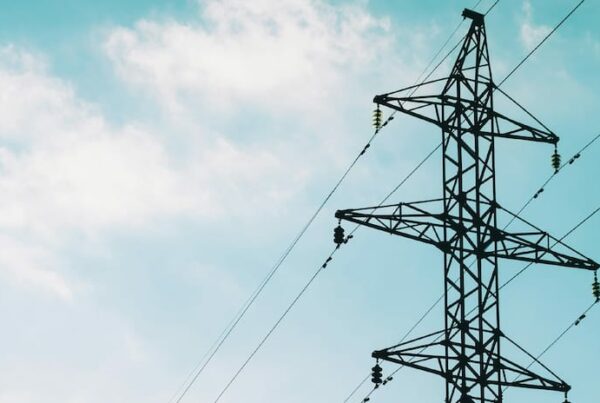This blog series covers the monthly La Plata Electric Association (LPEA) Board of Directors meetings. We’re tracking the board for transparency and accountability, as well as to stay current on their renewable energy initiatives. Find past and future spotlights here.
Get LPEA Spotlight in your inbox!
[button color=”extra-color-1″ hover_text_color_override=”#fff” size=”large” url=”#connect_open” text=”SUBSCRIBE” color_override=”#a1d078″]
Tri-State may have filed for FERC regulation in July, but parties impacted by the decision aren’t going away quietly. Both the Colorado Public Utilities Commission (PUC) and LPEA, among others, filed to intervene in Tri-State’s FERC filing. At the same time, the PUC is finalizing rules for Tri-State’s long-term resource planning processes, which dictate the utility’s energy supply for years to come.
There are a lot of moving pieces here, but it’s important to stay informed about what’s going on to make sure LPEA can keep moving forward.
The Colorado PUC Takes the Reins
For the first time in 25 years, the Colorado Public Utilities Commission (PUC) filed to intervene in a case before FERC. Their intervention and protest filing asked FERC to dismiss all of Tri-State’s filings, calling them “procedurally unsound, premature, incomplete, and jurisdictionally problematic.” They call out Tri-State’s secretive process, stating, “Tri-State’s rush to file scores of tariffs and contracts should not be rewarded.”
The PUC argues that Tri-State’s filing should be dismissed because:
1. The New Member is still a mystery
In order to qualify for federal regulation, Tri-State needs to add a member that is not a small electric cooperative. Tri-State alleges that they have a new member to add, but nobody knows who they are yet. The PUC argues that this total lack of information could create legal and jurisdictional problems, and is reason to dismiss the entire filing out of hand.
2. Questions of regulatory authority create legal ambiguity
If Tri-State were no longer under the PUC’s authority, what consequences would there be if they didn’t stick to their approved resource plan? Without knowing the answers to such questions, the PUC argues that FERC should reject Tri-State’s filing.
3. Tri-State might need state approval for new members
The PUC argues that the burden of proof is on Tri-State to prove that Colorado law allows them to add non-cooperative members without state regulatory permission.
4. It may not be up to Tri-State
The PUC notes that Tri-State is already under the PUC’s regulatory authority, and as such must obtain approval from the PUC for any sale, assignment, or lease outside normal business. Because Tri-State’s proposal lacks adequate rate applications, and they have not explained all the legal issues, the PUC argues that FERC should err on the side of caution and dismiss all filings.
The PUC then went through every docket that Tri-State filed, pointing out the flaws in each. Some of the defects the PUC found include:
1. Tri-State’s rates are not fully stated
Tri-State’s methodology in their rate filing is fundamentally flawed, and thus it is impossible for FERC to determine whether those rates are just and reasonable.
2. The 5% cap improperly limits generation
Tri-State imposes a 5% cap for local generation on all its member co-ops, which the PUC argues is against FERC principles. One of FERC’s guiding principles is to encourage new energy supplies; the 5% cap does the opposite. The limit also chains co-ops to whatever form of energy Tri-State supplies, potentially subsidizing uneconomic generation.
2. Problems with Tri-State’s transmission filings
The PUC points out several flaws in Tri-State’s transmission filings, such as:
- Tri-State’s files deviate from standard transmission tariffs, which are used to foster greater competition in wholesale markets. In order for Tri-State to deviate from these standard tariffs, they must demonstrate how their filing is superior to the standard, which they have not done.
- The transmission formula rate that Tri-State proposed lacks thorough reasoning
- It is unclear whether or not Tri-State will give stakeholders an opportunity to provide input regarding their transmission planning.
- Tri-State’s transmission agreements have never been subject to regulatory review, and the PUC contends that the burden is on them to prove they are just and reasonable. Without further investigation, there is uncertainty about whether these agreements are the product of “fair, arms-length negotiation”.
2. Tri-State doesn’t set effective market-based rates
Without knowing who the New Member is, it is impossible to know how they will impact generation, resources, or contracts. FERC should not approve a rate tariff that might be based on incomplete information.
In addition, the 5% cap that Tri-State has imposed on members could distort the market, and FERC ought to consider the effects it has on supply and the market.
3. Tri-State’s contracts may not be “just and reasonable”
The wholesale contracts that co-ops like LPEA are bound to have never been subject to regulatory review. The PUC argues the burden is on Tri-State to prove they are just and reasonable. When LPEA and other co-ops signed their contract, FERC regulation was not on the table; now, Tri-State must prove that federal regulation is within the fairness bounds of their contracts.
The PUC is also concerned that steep exit fees imposed on co-ops trying to leave the Tri-State “family” means cooperatives may not have enough bargaining power when negotiating contracts.
Finally, the contracts have ambiguous language when it comes to the rates members pay, which could lead to conflict over what is the correct tariff.
LPEA Files Too
LPEA also filed to intervene in the FERC case to protect the interest of members. Federal regulation could impact LPEA’s protections under state law, and could also hurt the co-op’s ability to meet their new carbon reduction goals. LPEA’s new CEO Jessica Matlock stated that LPEA has “direct and significant interests in the outcome of the FERC proceedings, and we want to ensure the rights and privileges LPEA currently possesses under Colorado state laws are not impacted by a change in a FERC rate jurisdiction.”
FERC has not yet decided whether to allow interested parties like LPEA and the PUC intervene in the case, so stay tuned for updates!
PUC holds resource-planning rulemaking for Tri-State
Another important part of the Tri-State puzzle is that the PUC will be holding a rulemaking regarding Tri-State’s Electric Resource Plan (ERP). An ERP is a long-term plan that helps both utilities like Tri-State and their regulators to decide how to best meet electricity demands. ERPs consider many factors in electricity resource planning, such as environmental considerations, costs, and reliability.
The Colorado Legislature recently required that the PUC adopt new ERP rules to make Tri-State’s plan more robust and ensure that it’s updated more frequently. Depending on the deadline the PUC sets in their rules, Tri-State might begin their ERP process in late 2019 or early 2020.
This process encompasses two rulemakings. The first regards the PUC process that will determine the rules that Tri-State must follow in their ERP. Strong new rules would require Tri-State to seriously evaluate the costs of its coal fleet, factor in the health and environmental costs of carbon when considering its energy mix, and formulate a plan when retiring a generation facility to help displaced workers transition.
The PUC will be accepting comments about this rulemaking through October 15th here. These comments will influence the final rules the PUC enacts for how Tri-State does its long-term planning. Make sure your voice is heard, and ask the PUC for strong rules that will benefit member-owners like us!
The second rulemaking is about the ERP process in general, and will start later this fall. During this rulemaking, we will ask Tri-State to start a just transition from coal to renewable energy, which will include:
- Complying with statewide carbon reduction goals
- Investing in local renewable energy generation while transitioning away from coal
Stay alert for updates concerning this ERP process. We’ll be letting you know how to make your voice heard!
In Other News…
Great news! The City of Durango passed a two-part resolution this August to:
- Reduce greenhouse gas emissions citywide by 80% by 2050
- Achieve 100% renewable electricity by 2050
This is an important milestone in the transition to a cleaner, more responsible future, and it couldn’t have happened without dozens of you all showing up and asking the Council to adopt bold goals regarding climate action.
We applaud the Council’s swift action on this resolution, and we’re excited to see how they move toward implementation of this goal!
UPCOMING MEETINGS:
Next LPEA Meetings:
Board Meeting: Wednesday September 18th in Pagosa Springs! (Ross Aragón Community Center, 451 Hot Springs Blvd)
Call or email your LPEA Board Directors.
(Hover over your neighborhood for contact information!)



